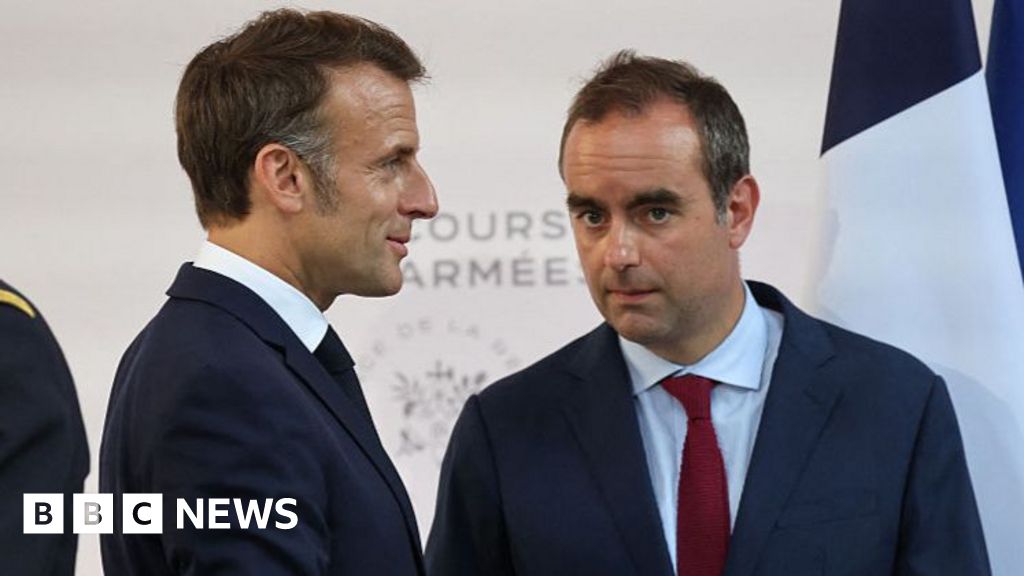Stocks listed in Europe were mixed at the open on Friday, amid tentative signs that a peace deal brokered by U.S. President Donald Trump is taking hold in the Middle East.
The pan-European Stoxx 600 was flat 20 minutes into the trading session, although most sectors moved higher.
Regional shares ended Thursday's session in negative territory, as dealmaking and ongoing political uncertainty in France held investor attention.
On Thursday evening, the Israeli government approved the first stage of a peace deal that will see the release of hostages held by Hamas. NBC News reported overnight that it remains unclear whether Hamas will disarm and disband, as outlined in Trump's peace plan, but a ceasefire should take effect within 24 hours under the terms of the agreement.
European defense stocks sold off after the opening bell on Friday, with the regional Stoxx Europe Aerospace and Defense index last seen 0.7% lower.
Money markets are also weighing the fallout of China's fresh export controls on rare earth minerals, which are critical in the manufacturing of various defense technologies as well as other widely used consumer goods.
Mining stocks led losses in Europe on Friday amid the developments in Beijing, with the Stoxx Europe Basic Resources index shedding 1.2% in morning trade. It marked a reversal from gains seen earlier this week after the European Union announced plans to increase steel tariffs.
Looking at individual stocks, Denmark's Jyske Bank topped the Stoxx 600 on Friday morning with a gain of 4.6%. It came after the lender hiked its earnings per share guidance and said it now expected a net profit of 4.9 billion to 5.3 billion Danish krona ($760 million to $820 million), up from a previous forecast of 3.8 billion to 4.6 billion krona.
German defense primes Hensoldt and Renk neared the bottom of the index, shedding 3.5% and 3.2%, respectively.
Italy's 'golden power rule' in EU's sights
Elsewhere in Europe, the European Commission is planning to act against Italy in a move designed to support banking consolidation in the region, sources have said.
Reuters first reported Thursday that the executive arm of the EU will challenge Italy's "golden power rule," which allowed Rome to impose strict conditions on UniCredit as it attempted to buy Banco BPM.
UniCredit subsequently decided to withdraw its bid earlier this year, citing the rule. Shares of UniCredit were last seen trading 0.5% higher.
A source close to the process told CNBC Thursday evening that the EU is moving ahead with action against Italy, with further steps expected in the coming month.
It comes after the European Commission also called on Spain earlier this year to comply with banking regulations in the context of BBVA's offer for Banco Sabadell.
The euro zone has seen a flurry of potential banking deals in the past 12 months, involving lenders in Italy, Spain, Germany and elsewhere. However, political interference has stopped deals from materializing, preventing the region's banking sector to compete more seriously with Wall Street.
European Commission President Ursula von der Leyen survived two no-confidence votes on Thursday with greater support from lawmakers than she had in a previous motion to remove her in July.
Investors will also be monitoring a string of economic data releases out of the region on Friday, including Italian industrial production, a Russian inflation print, and figures on Swiss consumer confidence.
Switzerland was hit with a 39% tariff rate by the Trump administration back in August, which the country's central bank labeled a "major challenge" at its September meeting.
Overnight in Asia, chip stocks rallied after a week that saw a string of AI deals being made. On Wall Street, U.S. stock futures were little changed on Friday morning as major averages came off of fresh record highs.











 English (US) ·
English (US) ·